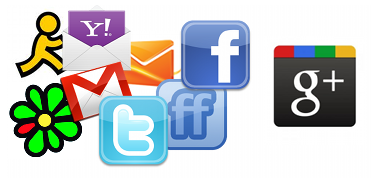Google Plus is for Geeks
Google Plus (G+) is for geeks. It’s how it is now, and I think that’s how it’s going to be going forward, more or less.
I’ve been using G+ now for about a month. I scored an invite early on, and a few days later invited a good chunk of people from my Gmail contacts. I went through the process of making circles, refining the circles, installing the add-ons into my Chrome browser, and so forth. Basically, I did just about everything most power G+ users would do, minus adding thousands of people into circles. I personally don’t see how Robert Scoble can read and sort through the tens of thousands of posts he must be getting daily. But he’s a true G+ freak power user.
The first few rounds of invites really went out to the bloggers, social media giants, and digeratis. For the most part, they like it. I certainly like it. And this group all should. The community and ecosystem resembles FriendFeed (FF). For those of you who are unfamiliar with FF, it was basically a once popular real-time feed aggregator that pulled from many social media and networking sites. It was popular among the very same crowd that’s using G+ now. Many call it FriendFeed 2.0.
I see that many people that I invited, just don’t use it. They either don’t get it, don’t care for it, or don’t want to bother with yet-another-social-network. Whatever the case may be, I can see that they’re not generating visible content. Facebook (FB) and Twitter seems to be doing business as usual. But G+ has the very niche users: the geeks. Bloggers, photographers, software developers, entrepreneurs, techies, etc… are all generating content daily.
Honestly, this all feels *very familiar *to me. It’s as though I’ve been here before….

I remember back in 1998/1999. I was an undergraduate still. Many of my friends were either in high school or also in college. I really liked ICQ as an instant messager (IM). Their software was far superior to AOL’s AIM in terms of functionality. But it didn’t get widely adopted amongst my American friends. Too many people were stuck with AOL as an internet service provider (ISP). By default they didn’t adopt ICQ because AIM was already available to them, which all their friends were using. Instead AIM became the popular standard, and AOL eventually bought out ICQ, which turned into a bloated software with less support.
Remember when Gmail first came out in 2004? Previous to this spectacular email service, there was AOL, Hotmail, Yahoo, and various other options. I remember the tech elite being the first to jump onto Gmail beta and use it. Sure Gmail in 2011 is popular (and out of beta since 2009), but despite that, there are still plenty of people still on AOL, Hotmail, Yahoo, and even Comcast for email. Sometimes I wish I could stage an email intervention for those still using non-Gmail services. For the most part, people didn’t switch to Gmail because of the cost of losing their email, the burden of updating their contacts, unable to think of email as conversations, the different user interface/experience (UI/UX), or even trusting Google, and I’m sure other costly reasons.
Going back into FriendFeed just a few years ago. I considered FF to be one of the best web apps that no one used. The weakness that FF had was that unless a user generated content from Twitter, their own blog, or other not-so-popular social network with an RSS feed, the service wouldn’t be of much use. FriendFeed got bought by Facebook in 2009, to which it then turned into a ghost town because development and support ended.
From these three cases, we have examples of:
- Popularity beating functionality.
- Switch-over cost being perceived as being too high.
- Inability to fully utilize a great service because it’s not a fit.
And they are all valid reasons. Well, maybe not the Gmail one… Sorry, I’m incredibly biased towards Gmail, I love it so much!
I see all these reasons being applicable as to why Google Plus may not be a true competitor to Facebook or even Twitter. As a G+ user, I think it’s already a better ecosystem than FB and Twitter. G+ has better interactions and a richer UI/UX than Twitter. The content is far better than what most FB users posts– at least in my experience, which may differ from yours. But none of the examples would apply to geeks in general. Geeks are natural early adopters of new things and technology.
G+ a fresh start that improves upon Twitter and Facebook, althougth it still has quite a few kinks to work out and improve on. As far as I’m concerned, the G+ can just as easily stand for Geek+.